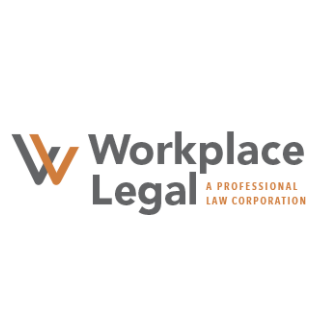On September 17, 2020, Governor Newsom signed into law SB 1383, radically altering the business and employment law landscape for small California employers. SB 1383 – which goes into effect on January 1, 2021 – significantly expands the reach of California’s Family Rights Act (CFRA), now mandating that employers with 5 or more employees must comply with CRFA’s requirements. [ 719 more words ]
https://workplacelegalpc.com/governor-signs-sb-1383-and-extends-cfra-leave-to-employees-at-small-businesses/
WORKPLACELEGALPC.COM
Governor Signs SB 1383 and Extends CFRA Leave to Employees at Small Businesses | Workplace Legal
When you’re working from the comfort of your own home (and perhaps – no judgment here! – your pajamas), and sparing yourself the hectic mornings of the past (think alarm snoozes and jam-packed highways), one would assume that you’re doing your mental health a favor, right? Wrong. A Huffington Post article published in July explains that, although you may not be experiencing the traditional signs of burnout (which we previously blogged about… [ 545 more words ]
https://workplacelegalpc.com/how-to-prevent-work-from-home-from-becoming-burnout-from-home/
WORKPLACELEGALPC.COM
How to Prevent WFH (Work from Home) from Becoming BFH (Burnout from Home) | Workplace Legal
On September 9, 2020, Governor Newsom signed AB 1867 into law, which, in part, supplements the federal Families First Coronavirus Response Act (“FFCRA”) enacted earlier this year. (For background on the FFCRA, see our previous blog posts here, here, and here). Specifically, AB 1867 creates Supplemental Paid Sick Leave (“SPSL”) rights for millions of California employees who may be impacted by COVID-19, but who are not covered by the FFRCA. [ 842 more words ]
https://workplacelegalpc.com/governor-newsom-expands-covid-19-leave-entitlements-for-many-california-workers/
WORKPLACELEGALPC.COM
Governor Newsom Expands COVID-19 Leave Entitlements for Many California Workers | Workplace Legal
As readers of this blog know, one year ago California’s Governor signed AB 5 into law, which mandated the “ABC Test” for determining whether a worker was an employee or an independent contractor. The signing of AB 5 into law was a watershed moment for California businesses and workers because the new “ABC Test” was going to make it hard – if not impossible – for many workers in many industries to be considered “independent contractors.” We blogged about AB 5… [ 1,394 more word ]
https://workplacelegalpc.com/governor-newsom-signs-ab-2257-granting-new-and-expanded-exemptions-to-californias-independent-contractor-law-ab-5/
WORKPLACELEGALPC.COM
Governor Newsom Signs AB 2257 Granting New and Expanded Exemptions to California’s Independent Contractor Law (AB 5) | Workplace Legal
In July, the U.S. Supreme Court ruled on two important cases relating to religion and employment. In both decisions, the Court came down squarely on the side of religious freedom, ruling in favor of employers. In Our Lady of Guadalupe School, two teachers brought employment discrimination claims against their former employers, both of which were Catholic elementary schools. Relying on the “ministerial exception,” the Court ruled that the teachers could not bring federal employment discrimination claims against their religious employers. [ 416 more words ]
https://workplacelegalpc.com/u-s-supreme-court-no-separation-of-church-and-employer/
WORKPLACELEGALPC.COM
U.S. Supreme Court: No Separation of Church and Employer | Workplace Legal
In case there was any doubt, the California Court of Appeal recently delivered an expensive reminder of its pro-employee stance. Timothy King, a former Regional President for U.S. Bank, was recently awarded $15.6 million in damages based on a jury’s finding that U.S. Bank defamed and wrongfully terminated him in order to avoid paying him a bonus. U.S. Bank was unhappy with that outcome and filed an appeal. [ 337 more words ]
https://workplacelegalpc.com/quit-when-youre-ahead-an-expensive-lesson-for-one-california-employer/
WORKPLACELEGALPC.COM
Quit When You’re Ahead – An Expensive Lesson for One California Employer | Workplace Legal
The COVID-19 pandemic has changed many aspects of everyone’s lives. Many of the major changes have taken place at the workplace. Employers were forced to scramble to create systems to allow employees to work remotely. Initially, this was a huge challenge for many employers, particularly those that had never allowed employees to work remotely prior to the pandemic. Now that 6 months have passed, and the pandemic is still very real, many employers have realized the benefits of this new structure and are making the decision to permanently transition to a remote workforce. [ 774 more words ]
https://workplacelegalpc.com/transitioning-to-a-permanent-remote-workforce-here-are-a-few-things-to-consider/
WORKPLACELEGALPC.COM
Transitioning To A Permanent Remote Workforce? Here Are A Few Things To Consider | Workplace Legal
In response to COVID-19, Governor Newsom issued Executive Order N-62-20 on May 6, 2020. That order created a “rebuttable presumption” that certain employees who suffer a COVID-19 related illness or injury would be presumed to have contracted the virus in the course and scope of employment for purposes of applying for and receiving workers’ compensation benefits. But, on September 17, 2020, Governor Newsom signed SB 1159 into law, which changes the standard from “rebuttable” to “disputable” presumption. [ 1,116 more word ]
https://workplacelegalpc.com/governor-newsom-signs-sb-1159-extending-workers-compensation-benefits-for-employees-who-contract-covid-19/
WORKPLACELEGALPC.COM
Governor Newsom Signs SB 1159 Extending Workers’ Compensation Benefits for Employees Who Contract COVID-19 | Workplace Legal
We recently blogged about SB 1159 here, which expanded protections for employees potentially exposed to COVID-19 in the workplace. On September 17, 2020, Governor Newsom also signed into law AB 685, which provides additional requirements for employers to report cases of COVID-19. AB 685 will not take effect until January 1, 2021; therefore, employers have some time to review the law and begin preparing for their new reporting obligations. [ 534 more words ]
https://workplacelegalpc.com/under-ab-685-employers-have-new-covid-19-reporting-requirements/
WORKPLACELEGALPC.COM
Under AB 685, Employers Have New COVID-19 Reporting Requirements | Workplace Legal
California’s Private Attorneys General Act (“PAGA”) authorizes aggrieved employees to file lawsuits to recover civil penalties on behalf of themselves, other employees, and the State of California for violations of the California Labor Code. Lawsuits brought under PAGA have resulted in employers paying millions of dollars in penalties that the state almost certainly would not have recovered otherwise. Though the California Supreme Court ruled years ago that arbitration agreements are not enforceable with respect to PAGA claims (see our blog post… [ 371 more words ]
https://workplacelegalpc.com/court-of-appeals-confirms-that-arbitration-agreements-wont-protect-employers-from-paga-litigation/
WORKPLACELEGALPC.COM
Court of Appeals Confirms That Arbitration Agreements Won’t Protect Employers from PAGA Litigation | Workplace Legal
The ongoing global pandemic has invaded nearly every aspect of our lives. Perhaps most notable is the way in which COVID-19 has reshaped the working world. No matter what your industry, chances are it looks starkly different now as compared to the pre-COVID era. Forbes contributor Susan Galer of SAP frames the transformation of the working world as an opportunity rather than a loss. ...
https://workplacelegalpc.com/covid-19-provides-a-chance-to-hit-the-reset-button-on-everything-including-hr/
WORKPLACELEGALPC.COM
COVID-19 Provides A Chance to Hit the Reset Button on Everything, Including HR | Workplace Legal
PAGA + COVID = More Business Closures and Bankruptcies As readers of this blog know, California’s unique and complex employment laws can, if violated, trigger an avalanche of back-due wages, penalties, liquidated damages, attorneys’ fees, and interest. As a result, well-counseled California employers – and particularly California small business employers – who get hit with large wage-and-hour class actions or PAGA lawsuits sometimes consider strategic bankruptcy as a possible last-ditch effort to avoid financial ruin....
https://workplacelegalpc.com/californias-new-bankruptcy-law-ab-1885-impacts-employers-and-employees/
WORKPLACELEGALPC.COM
California’s New Bankruptcy Law (AB 1885) Impacts Employers and Employees | Workplace Legal
On December 1, 2020, the six-member board overseeing California’s Division of Occupational Safety and Health (“Cal-OSHA”) approved emergency COVID-19 safety regulations governing most employers and places of employment in California, with three exceptions: (1) places of employment with one employee who does not have contact with other persons; (2) employees working from home; and (3) employees already covered by the aerosol transmissible disease standard at 8 CCR §5199. ...
https://workplacelegalpc.com/california-approves-emergency-covid-19-regulations/
WORKPLACELEGALPC.COM
California Approves Emergency COVID-19 Regulations | Workplace Legal
On September 28, 2020, Governor Gavin Newsom signed Assembly Bill (AB) 2992, which significantly expands the circumstances under which protected leave is available to California employees who are victims of crime or abuse. California law already requires all employers to grant protected leave (meaning the employer cannot discharge, discriminate against, or retaliate against an employee for taking the leave) to an employee who is the victim of domestic violence, sexual assault, or stalking in order to allow the victim/employee to seek “relief,” such as a restraining order, for victim/employee or their child. ...
https://workplacelegalpc.com/employees-who-are-victims-of-crime-or-abuse-get-additional-leave-rights/
WORKPLACELEGALPC.COM
Employees Who Are Victims of Crime or Abuse Get Additional Leave Rights | Workplace Legal
Employers have had to navigate the ever-changing regulations and laws regarding employment during the COVID-19 pandemic. From ensuring safe workplaces, to complying with reporting regulations, to dealing with leaves of absence, employers have had to stay on top of COVID-19 regulations while continuing to run their businesses. Now, employers are facing yet another challenge – should they require their employees to get the COVID-19 vaccine? ...
https://workplacelegalpc.com/can-employers-mandate-the-vaccine-yes-should-they-that-is-a-different-question/
WORKPLACELEGALPC.COM
Can employers mandate the vaccine? Yes. Should they? That is a different question. | Workplace Legal
The new year is right around the corner, and with it comes a host of new and amended laws for California employers. As we blogged about previously, numerous California employment laws changed in 2020 – COVID-19-related AB 685, AB 1867 and SB 1159, expansions to California’s Family Rights Act in SB 1383, new exemptions relating to independent contractor status in…...
https://workplacelegalpc.com/new-year-new-laws-coming-soon-to-a-workplace-near-you/
WORKPLACELEGALPC.COM
New Year, New Laws: Coming Soon to a Workplace Near You | Workplace Legal
With little public recognition in light of the ongoing pandemic-related legislation, Governor Newsom recently approved AB 1947 – legislation that will have significant impact on employers. AB 1947 amends two specific provisions of the Labor Code relating to employee retaliation claims – Section 98.7, which enables workers to file retaliation claims with the Labor Commissioner, and Section 1102.5, which prohibits (a) employer policies seeking to prevent an employee from disclosing information to a government or law enforcement agency about potential violation of state or federal law, and (b) retaliation against an employee who discloses such information, refuses to participate in activity that would result in a legal violation, or who has exercised such rights in a former job....
https://workplacelegalpc.com/silent-but-deadly-ab-1947-packs-a-punch-for-retaliation-claims/
WORKPLACELEGALPC.COM
Silent but Deadly? AB 1947 Packs a Punch for Retaliation Claims | Workplace Legal
A recent article by Howard Schneider and Jonnelle Marte, published by Reuters, takes a closer look at how the COVID-19 pandemic is changing the economy and workforce of the United States. Many of the changes we all assumed would be temporary have become indefinite or permanent, and that is having a noticeable impact. The authors looked at detailed monthly jobs data from labor economists and Reuters and found some interesting trends. ...
https://workplacelegalpc.com/how-covid-19-is-shaping-the-u-s-workforce/
WORKPLACELEGALPC.COM
How COVID-19 is Shaping the U.S. Workforce | Workplace Legal
As an employer, there is nothing more disheartening than finding the “perfect employee,” and then losing that employee and having to start the hiring process back at square one. Recently, Forbes contributor Robert Sher delved into this issue and put forth a solution: mentorship. By pairing new hires up with experienced colleagues – not just managers, but peers – companies can implement a team-led solution to the problem of retention without relying too heavily on HR to handle employee onboarding, integration, and continued performance....
https://workplacelegalpc.com/better-together-mentor-matchups-as-a-buffer-for-employee-retention/
WORKPLACELEGALPC.COM
Better Together: Mentor Matchups as a Buffer for Employee Retention | Workplace Legal
California employers face even more liability now for misclassifying workers as “independent contractors.” That’s because the California Supreme Court recently ruled in Vasquez v. Jan-Pro Franchising, Inc. that the test for determining whether a worker qualifies as an employee or independent contractor – known as the “ABC Test” and announced in the Court’s 2018 decision Dynamex Operations West, Inc. v....
https://workplacelegalpc.com/california-supreme-court-rules-dynamex-applies-retroactively/
WORKPLACELEGALPC.COM
California Supreme Court Rules That Dynamex Applies Retroactively | Workplace Legal
On November 30, 2020, California’s Division of Occupational Safety and Health (Cal-OSHA) adopted a set of COVID-19 Emergency Temporary Standards (“ETS”), which became effective immediately. The ETS require employers to take various actions to protect their workplaces from COVID-19. You can read our previous blog post about the ETS here. On December 1, 2020, Cal-OSHA released a Frequently Asked Questions…...
https://workplacelegalpc.com/cal-osha-provides-additional-guidance-for-employers-regarding-covid-19-emergency-temporary-standards/
WORKPLACELEGALPC.COM
Cal-OSHA Provides Additional Guidance for Employers Regarding COVID-19 Emergency Temporary Standards | Workplace Legal
Now that President Biden has signed the American Rescue Plan Act (“ARPA”) into law, we’ve had the chance to review the massive legislation. And we’ve discovered some little-known provisions in the law that directly impact employers and employees. Here’s a quick summary of those provisions: Incentives for Employers to Offer Paid Sick Leave As we explained in a prior post…...
https://workplacelegalpc.com/how-the-new-american-rescue-plan-act-impacts-employers-and-employees/
WORKPLACELEGALPC.COM
How the New “American Rescue Plan Act” Impacts Employers and Employees | Workplace Legal





